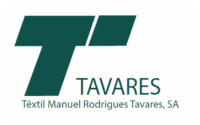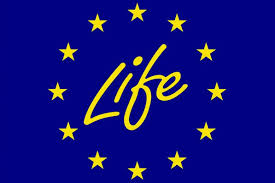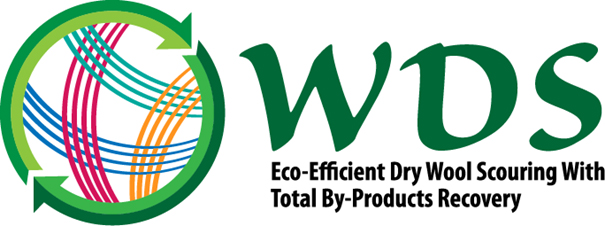WDS
WDS
Eco-Efficient Dry Wool Scouring with total by-products recovery
life-wds.eu
ABSTRACT
Wool is a natural fibre obtained from sheep, which is subjected to global supply and demand. The raw wool material represents a percentage between 40 and 80% of wool fibber, being the rest impurities in a range of 20-60% (WO 02/083999 A1, April 2001). The world production of wool in 2009 is 2,04 million tonnes and Europe is the fourth largest wool producer in the world after Australia, China and New Zealand.
The effective wool scouring is an essential step to remove pollutants that would otherwise impede its further processing. The current outgoing effluent from wool scouring is extremely polluting, leading to the discharge of an effluent with high organic content. The aqueous cleaning processing of 1 Kg of clean wool produces around 17 L of wastewater, with a high COD value from 0.3 to 2,4 Kg per Kg of clean wool, several content of detergents and variable amounts of micropollutants. Consequently, wool scouring has a high environmental impact due to the large quantity of wastewater generated, which involves difficult treatment and disposal, as well as an intensive use of resources, such as water and energy. The current aqueous washing scouring is far away from achieving a close loop concept, where all the current waste streams become recovered as valuable by-products.
In this way, the new methodology of Wool Dry Scouring (WDS) project focuses on demonstrating new technologies based on closed-loop processing and total waste recovery. In particular, wool grease (lanolin) and wool dust will be recovered as by-products. In this way, they are not discharged into the waste streams and the complex and expensive waste water treatments are avoided.
The WDS is focused on maximising the recovering efficiency of different grease wool components: wool, wool grease, suint and dirt for obtaining final by-products with a market value instead of waste effluents; which require a very complex and expensive treatment, as well as an expensive disposal without economic and social value. A reduction of energy use, chemicals, water consumption and capital expenses are expected in WDS. The new designed prototype will produce clean wool of enhanced quality. In addition, the WDS cost reduction, the selling of by-products, wool grease and dry solid as fertilizer is also expected. The project offers a sustainable and
efficient wool scouring process to improve the clean wool quality whiteness and add value to wool while making the scourers competitive in Europe thanks to the by-products selling income and avoiding expensive waste water treatment costs.
Project Budget: 3’007’732 €
LEITAT Budget: 344’932 €
Financial Framework: LIFE+
Contract number: LIFE11 ENV/ES/000588
Start Date: 01/09/2012
End Date: 28/02/2016
Partners:




Contact Manager: L. Valentin

LIFE-WDS is co-funded by the European Union under the LIFE+ Financial Instrument under the Grant Agreement nº LIFE11 ENV/ES/000588

